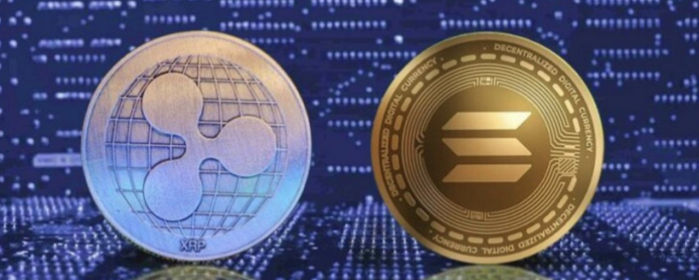The cryptocurrency market has surpassed US $4 trillion following a capital rotation toward Solana and XRP, at the expense of Bitcoin and Ethereum. This surge reflects a combination of technical factors, emerging narratives, and international speculative flows, creating new opportunities while also posing regulatory, market, and long-term sustainability risks across multiple sectors.
Market Dynamics
The outflow of capital from Bitcoin and Ethereum toward altcoins with higher liquidity and clear value propositions has accelerated market growth.
Bitcoin remains the leader by market capitalization.
Ethereum retains a key role due to its decentralized applications and smart contract ecosystem.
However, the current dynamics favor assets that can attract capital quickly, explaining the central role of Solana and XRP in the surge in overall global market valuation.
Technical Factors of Solana and XRP
Solana stands out for its high-performance architecture, with low fees and low latency, attracting traders, developers, and projects needing fast, scalable, and cost-efficient transactions.
XRP shows strong sensitivity to regulatory news and adoption in payments. Court rulings, announcements, or adoption developments often amplify price volatility, generating cycles of confidence, uncertainty, and correction.
Regulatory and Market Risks
Market capitalization growth does not eliminate volatility or the risk of sharp corrections.
There are signs of overvaluation in certain segments that require careful monitoring.
Regulatory uncertainty, especially in the US and Europe, remains a key factor that can redirect capital flows, impact market sentiment, and alter incentives.
Authorities and regulatory bodies emphasize the need for prudence and the importance of clear and consistent regulatory frameworks to protect investors and maintain stability.
Implications for Financial Inclusion and Risk Management
The shift toward low-cost, low-latency altcoins can reduce barriers to access and expand financial inclusion for retail and institutional participants.
Sustaining this expansion requires financial education, adequate risk management, transparency, and robust user protection mechanisms.
Participants must balance the pursuit of returns with active risk management and constant regulatory monitoring to build a more decentralized, resilient, and inclusive financial infrastructure without compromising global market integrity.

Conclusion
The rise above US $4 trillion reflects a phase of capital redistribution, with Solana and XRP playing a central role. Investors’ challenge is to leverage opportunities while maintaining prudence, strategic diversification, strong risk controls, and long-term awareness of market and regulatory dynamics.

